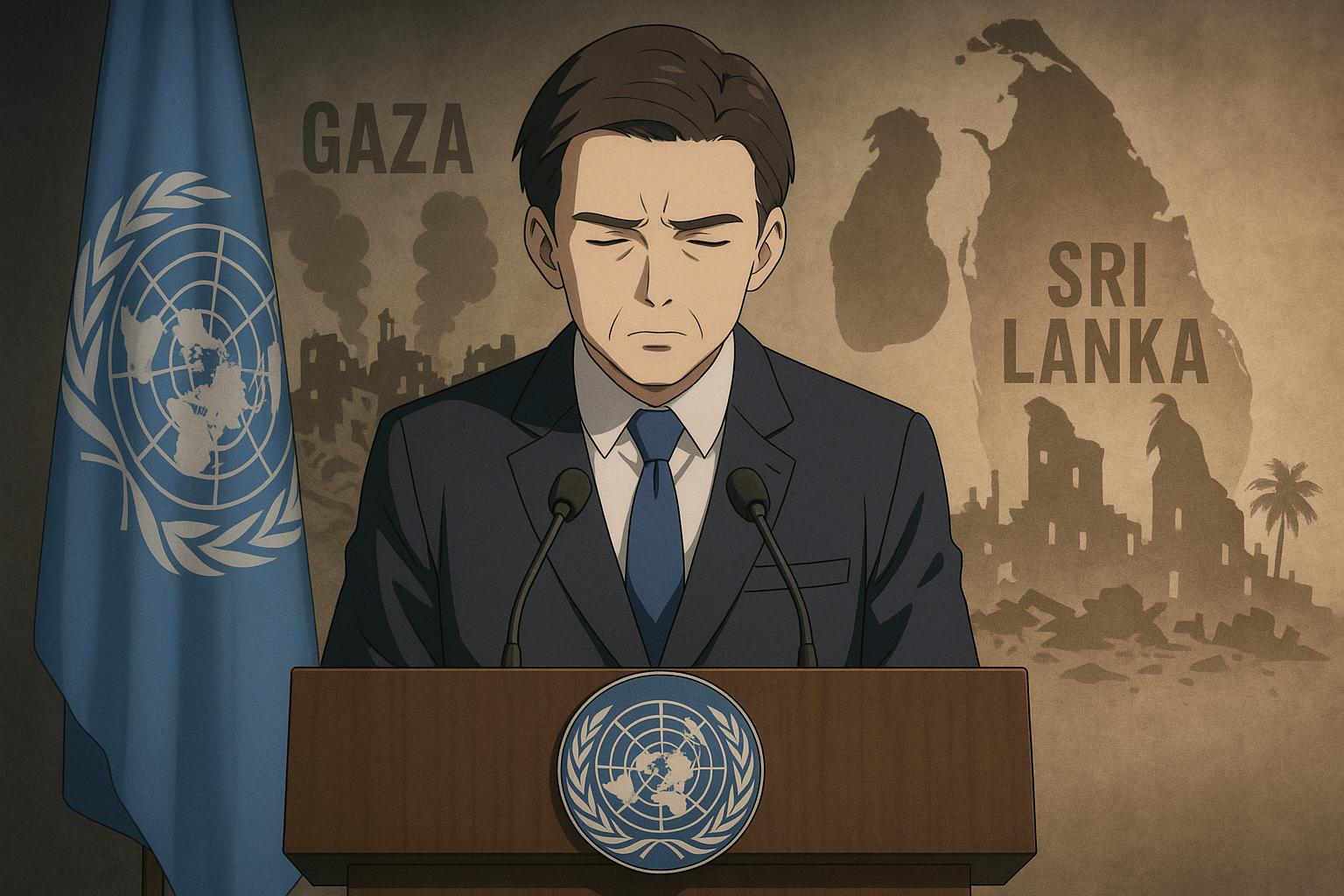Delivering a deeply resonant address to the United Nations Security Council on 13 May, Tom Fletcher, the UN Under-Secretary-General for Humanitarian Affairs and Emergency Relief Coordinator, issued a grave warning regarding the situation in Gaza. He drew chilling parallels to past global failures in preventing mass atrocities, particularly referencing the crisis in Sri Lanka. This invocation was both a call for urgent action and a stark reminder of historical negligence.
Fletcher pointed to the UN's own reports, including a critical 2012 analysis of the situation in Sri Lanka, which acknowledged the organisation's "systemic failure" to adequately respond during the tumultuous final stages of the armed conflict in 2009. In that conflict, the Sri Lankan state’s military operations resulted in the deaths of tens of thousands of Tamil civilians, a situation increasingly classified as genocide. Fletcher’s remarks emphasised that the international community's inaction and refusal to intervene during such crises perpetuate a cycle of impunity. “Previous reviews of the UN’s conduct in cases of large-scale violations… pointed to our collective failure to speak to the scale of violations while they were committed,” he stated, challenging the Council to assess its past shortcomings.
Fletcher highlighted the deteriorating humanitarian conditions in Gaza, where for over ten weeks, vital supplies such as food, medicine, and water have been barred from entering the region. He remarked, “Israel is deliberately and unashamedly imposing inhumane conditions on civilians,” underscoring that the humanitarian crisis is not merely a consequence of the ongoing conflict but is strategically enforced through the blockade. Hospitals are reportedly overwhelmed and at risk from military actions, with medical personnel facing life-threatening risks while attempting to care for the sick and injured.
The narrative surrounding Gaza is underscored by reports from various UN officials who have also sounded alarms about the unfolding crisis. Volker Turk, the UN High Commissioner for Human Rights, added weight to the concerns expressed by Fletcher by highlighting the recent killings of humanitarian workers and calling for an urgent investigation into these incidents. His comments reflect a growing sentiment within the UN regarding the alarming escalation of violence and the implications for civilian safety in the territory.
Recent statements from Philippe Lazzarini, the head of the UN Relief and Works Agency for Palestine Refugees, have further detailed the dire consequences of the ongoing blockade. Lazzarini warned that without immediate humanitarian intervention, Gaza could face a return to severe hunger crises, a situation compounded by the escalating violence. He condemned the blockade as a violation of humanitarian principles, characterising it as a method of weaponising assistance for political ends.
The international community's response to the situation is now under intense scrutiny. Fletcher reminded Council members that the International Court of Justice is currently evaluating whether genocide is occurring in Gaza. By invoking the horrifying memories of Sri Lanka, he urged them to act decisively—asking directly if they would choose to intervene or simply justify their inaction by claiming they had done all they could.
As the Tamil diaspora and communities in the North-East United States marked the 16th anniversary of the Mullivaikkal genocide, Fletcher's words resonate with heightened urgency. They serve not only as a stark reflection on the past but also as a clarion call for accountability and action to prevent further atrocities in Gaza.
In an environment of rising tensions and international focus, the expectations placed upon global leadership to intervene effectively and compassionately have never been clearer. The parallels drawn from past tragedies must fuel a renewed commitment to protecting human rights and preventing a repetition of history’s darkest chapters.
Source: Noah Wire Services
